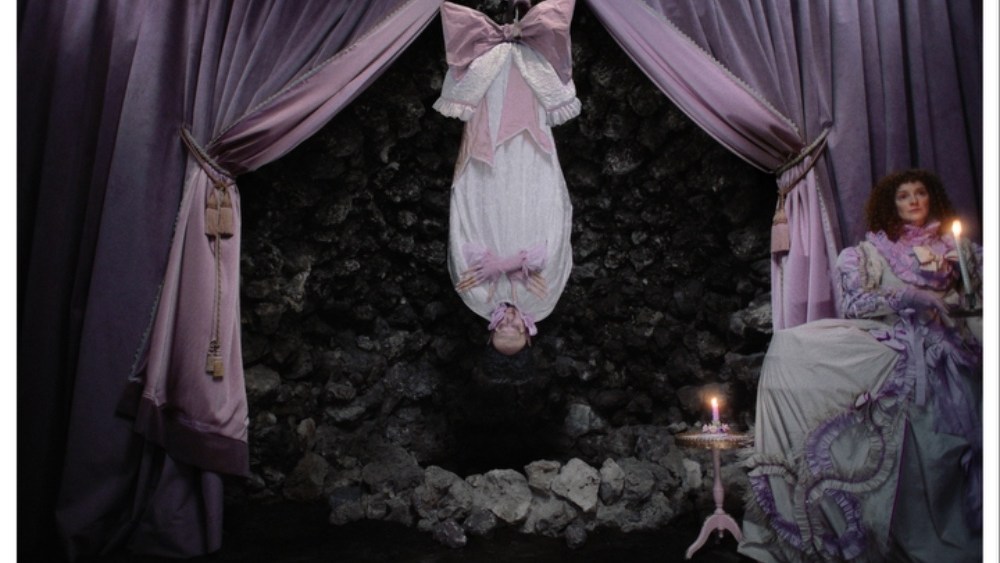Vampires Face HIV/AIDS in Eduardo Casanova´s Miniseries ‘Silence’
Spanish actor-director Eduardo Casanova takes on the Black Plague and HIV/AIDS pandemics in explosive miniseries “Silence” – as well as female vampires, suddenly faced with the shortage of “uncontaminated” human nourishment.
“In so many horror films, monsters are hidden. They are living in the dark, invisible – and so are seropositive women,” he tells Variety.
“When we talk about the HIV/AIDS epidemic, also in the cinema, the focus is on gay men – even though this disease doesn’t recognize gender. You think ‘Philadelphia’. For me, that’s horrible, because you had a straight white man [Tom Hanks] playing the lead. He hasn’t experienced it himself.”
According to Casanova, “it’s the most complicated illness in the world.”
“You don’t really die from it anymore, but you still stay silent because the stigma is very, very strong. Even more so for women, because gay men, or at least white gay men, are like straight men. They have the same privileges.”
“These days, you can’t enter 48 countries if you are living with HIV, it’s hard to find a partner. It can give you sexual trauma – and yet you can’t die. It’s the stigma that kills and fucks with the minds of the afflicted people. And because it’s related to sex, and to homosexuality, it has been demonized by the most powerful system, which is the Church.”
He says: “You can’t break the silence because the system, and the heteropatriarchy, doesn’t allow it. That’s why I always say the Devil is our ally. Because whatever the Church represents has always rejected us.”
Born in 1991, Casanova has gained acclaim for viral short “Eat My Shit” – it later inspired his debut feature “Skins,” which premiered at the Berlinale. He’s also behind “Piety” and two episodes of “Nacho.”
In his centuries-spanning series – shown at Locarno and composed of three episodes – vampire sisters try to survive while also dealing with their own conflicting emotions. Love, especially the one felt for a human, being the absolute worst of them all.
“It’s a camp and kitsch version of ‘Romeo and Juliet.’ No, I’m just kidding. But it is romantic. When I think about my films, ‘Skins’ or ‘Piety,’ they were ultimately quite harsh. I haven’t always been generous with my audience. Now, I wanted to combine a love story with black comedy, and make sure they have a good time,” he says.
“Then again, if the audience throws up, I always take it as a good sign.”
Leticia Dolera, María Leon, Ana Polvorosa, Omar Ayuso, Lucía Díez and Ana Polvorosa take on the roles that required some impressive prosthetics. “It’s so expensive, so people prefer AI and CGI, but I love this look of old B-movies,” notes Casanova.
“It’s not like I’m a fan of TV series. I prefer movies. But right now, people are in love with series, and if you don’t accept it, if you don’t evolve, you won’t be able to shoot. Personally, I don’t care about the format. I just need to be able to tell my stories,” he explains.
He adds: “I need to write all the time. I need to create all the time. I’m not able to express myself if it’s not through cinema. My cinema, my stories… It’s my whole fucking life.”
Going from serious scenes of fear and emotional rejection – even by the ones who declared unconditional love – to showing his long-fanged protagonists literally put on a musical show for the audience, he wasn’t afraid of clashing tones.
“I love it when I watch something and feel confused. Listen – I don’t believe in gender, and I don’t believe in genres. The last chapter of the series was filmed on 16mm, referencing all the grainy, dirty bits of cine quinqui [Spanish genre popular at the end of the 1970s and in the 1980s, depicting marginalized people and starring non-professionals]. I like to mix things up.”
He also likes to be funny.
“I try to be. I make movies – and shows – for hugs, applause and kisses. I like to be the court jester. But I have my traumas, like the whole world, and it would be difficult to write something that’s pure comedy. My social consciousness always makes it into my writing.”
And yet his latest work might be his most accessible yet.
“I want to be a generous muchacha, also when giving interviews. Lots of people hate me and lots of people love me – same goes for my work. But now, I’m trying to please everyone,” he laughs.
“I know that’s a bit toxic, but I need love and validation. That’s my weakness, my Achilles heel. I don’t want my work to be seen as this odd kid nobody likes in school. It’s an extension of my body, and now I want it to be accepted.”
“Silence” is produced by Gamera Studios, in co-production with Apoyo Positivo and Antonio Abeledo SL.

‘Silence’

